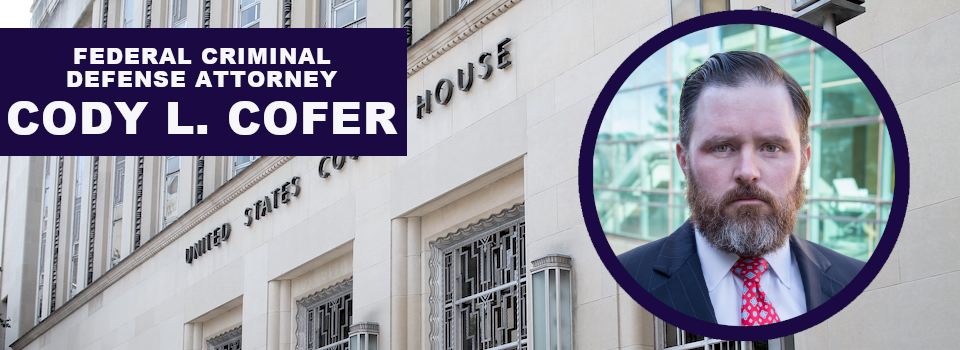
The Need for Compassionate Release
The escalation of COVID-19 pandemic in the United States in 2020 has increased concerns about federal prison population overcrowding throughout the country. Inmates and families are terrified by the health and safety risks for those incarcerated during the pandemic. The number of filings for applications and motions for compassionate release have skyrocketed. The federal district courts are flooded with 18 U.S.C. § 3582 motions. People are frantically seeking safer alternatives to imprisonment to avoid unnecessary exposure to COVID-19.
Viral outbreaks in our crowded federal prisons have made headlines in the Northern District of Texas and throughout the country. The World Health Organization and other global health, human rights and development institutions, have come together to:
“[U]rgently draw the attention of political leaders to the heightened vulnerability of prisoners and other people deprived of liberty to the COVID-19 pandemic, and urge them to take all appropriate public health measures in respect of this vulnerable population that is part of our communities.”
After the passing of the Coronavirus Aid, Relief, and Economic Security Act (CARES Act), U.S. Attorney General William Barr declared that the Federal Bureau of Prisons (BOP) is facing emergency conditions due to the fast-spreading coronavirus. With this declaration, A.G. Barr directed the BOP to: increase the use of processes to evaluate prisoners eligible for home confinement, particularly those at centers heavily impacted by the virus; allow for expanded eligibility for home confinement, including increasing the percentage of a sentence allowed to be carried out in home confinement; and the granting of sentence modifications for medically vulnerable and elderly inmates at high risk for COVID-19 complications.
First Step Act and Procedures
Compassionate Release is not a new option in response to COVID-19. However, the 2018 First Step Act has widened the program in an effort to allow easier and more effective prison release options for appropriate cases.
The act amended 18 U.S.C. § 3582(c) regarding when a federal district court can modify a prison sentence once it is imposed. Under Section 3582(c)(1)(A), a federal district court, upon a petition from the Federal Bureau of Prisons, can reduce a prisoner’s sentence and impose a term of probation or supervised release, with or without conditions, equal to the amount of time remaining on the prisoner’s sentence if the court finds that “extraordinary and compelling reasons warrant such a reduction.” A federal court order modifying a sentence under this provisions is known as “Compassionate Release.”
The amendments allow the federal district court to reduce a prisoner’s sentence under Section 3582(c)(1)(A) upon a petition from Federal Bureau of Prisons or the prisoner if the prisoner has fully exhausted all administrative rights to appeal a failure by Federal Bureau of Prisons to bring a motion on the prisoner’s behalf or upon a lapse of 30 days from the receipt of such a request by the prison’s warden of the prisoner’s facility, whichever is earlier.
The act also requires Federal Bureau of Prisons, within 72 hours of a prisoner being diagnosed with a terminal illness, to notify the prisoner’s attorney, partner, and family about the diagnosis and inform them of their option to submit a petition for compassionate release on the prisoner’s behalf. Within seven days, Federal Bureau of Prisons is required to provide the prisoner’s partner and family with an opportunity to visit. Federal Bureau of Prisons is also required to provide assistance to the prisoner with drafting and submitting a petition for compassionate release if such assistance is requested by the prisoner or the prisoner’s attorney, partner, or family. BOP is required to process requests for compassionate release within 14 days.
When a federal prisoner is mentally or physically unable to submit a petition for compassionate release, then the Federal Bureau of Prisons is required to notify the prisoner’s attorney, partner, or family that they can submit a petition on the prisoner’s behalf. In this circumstance, the Federal Bureau of Prisons must accept and process requests for compassionate release that are drafted by the prisoner’s attorney, partner, or family. The Federal Bureau of Prisons must also assist prisoners who are mentally or physically unable to prepare their own request if such assistance is requested by the prisoner’s attorney, partner, or family.
The Federal Bureau of Prisons must make available to prisoners information regarding their ability to request compassionate release, including information about the timeline for submitting a request and the prisoner’s right to appeal to a district court the denial of a request after exhausting all administrative appeals the Federal Bureau of Prisons makes available to prisoners. The Federal Bureau of Prisons should make this information available in written materials for prisoners and staff, and the BOP should visibly post the information.

Compassionate Release Attorney
Despite A.G. Barr’s directive, there is a lot of confusion around implementation by the BOP. Even clear-cut cases are being denied release to home confinement. Without any relief from BOP, many inmates are enlisting attorneys for compassionate release requests.
If you have a loved one that needs to file for Compassionate Release, contact one of our Federal Criminal Attorneys today.
Generally, the compassionate release motions need to be very persuasively fashioned to get the federal district court to understand an inmate’s medical fragilities or vulnerabilities, in combination with the risk of COVID-19.
According to sources in an article from Forbes, “BOP is, at this time, prioritizing those inmates who either (1) have served 50% or more of their sentences, or (2) have 18 months or less remaining in their sentences and have served 25% or more of their sentence. The BOP has discretion under the CARES Act to send anyone to Home Confinement no matter how long their sentence. There is no policy stating that Home Confinement is only available to a person who has served a certain amount of their sentence.”
Contact a federal criminal defense lawyer that regularly practices in the court where the inmate was sentenced. Your lawyer needs to work with the specific federal institution and federal prosecutors to file the appropriate motion to ensure that any medically fragile, at-risk, or otherwise eligible persons have the option of compassionate release or other sentence modification.
Cofer Luster Criminal Defense Lawyers, are pursuing compassionate release for clients throughout Texas. Contact us today to see what options are available for your loved one: 682-777-3336.







